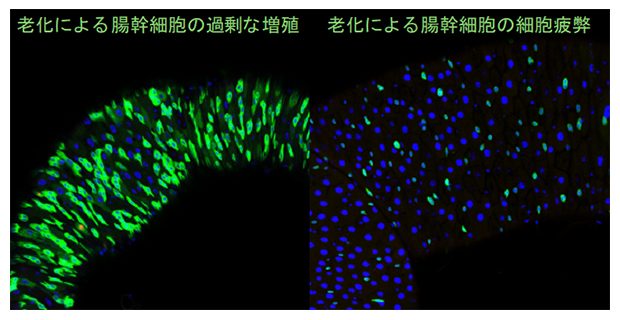2024-09-09 ペンシルベニア州立大学(PennState)
<関連情報>
- https://www.psu.edu/news/research/story/refined-dietary-fiber-may-increase-risk-inflammatory-bowel-disease
- https://www.tandfonline.com/doi/full/10.1080/19490976.2024.2341457
- https://onlinelibrary.wiley.com/doi/10.1002/cnr2.1863
食物繊維グアーガムによる腸内細菌叢の代謝と腸管免疫活性の変化が大腸炎症への感受性を高める Dietary fiber guar gum-induced shift in gut microbiota metabolism and intestinal immune activity enhances susceptibility to colonic inflammation
Devendra Paudel,Divek V. T. Nair,Sangshan Tian,Fuhua Hao,Umesh K. Goand,Grace Joseph,…
Gut Microbes Published:17 Apr 2024
DOI:https://doi.org/10.1080/19490976.2024.2341457

ABSTRACT
With an increasing interest in dietary fibers (DFs) to promote intestinal health and the growth of beneficial gut bacteria, there is a continued rise in the incorporation of refined DFs in processed foods. It is still unclear how refined fibers, such as guar gum, affect the gut microbiota activity and pathogenesis of inflammatory bowel disease (IBD). Our study elucidated the effect and underlying mechanisms of guar gum, a fermentable DF (FDF) commonly present in a wide range of processed foods, on colitis development. We report that guar gum containing diet (GuD) increased the susceptibility to colonic inflammation. Specifically, GuD-fed group exhibited severe colitis upon dextran sulfate sodium (DSS) administration, as evidenced by reduced body weight, diarrhea, rectal bleeding, and shortening of colon length compared to cellulose-fed control mice. Elevated levels of pro-inflammatory markers in both serum [serum amyloid A (SAA), lipocalin 2 (Lcn2)] and colon (Lcn2) and extensive disruption of colonic architecture further affirmed that GuD-fed group exhibited more severe colitis than control group upon DSS intervention. Amelioration of colitis in GuD-fed group pre-treated with antibiotics suggest a vital role of intestinal microbiota in GuD-mediated exacerbation of intestinal inflammation. Gut microbiota composition and metabolite analysis in fecal and cecal contents, respectively, revealed that guar gum primarily enriches Actinobacteriota, specifically Bifidobacterium. Guar gum also altered multiple genera belonging to phyla Bacteroidota and Firmicutes. Such shift in gut microbiota composition favored luminal accumulation of intermediary metabolites succinate and lactate in the GuD-fed mice. Colonic IL-18 and tight junction markers were also decreased in the GuD-fed group. Importantly, GuD-fed mice pre-treated with recombinant IL-18 displayed attenuated colitis. Collectively, unfavorable changes in gut microbiota activity leading to luminal accumulation of lactate and succinate, reduced colonic IL-18, and compromised gut barrier function following guar gum feeding contributed to increased colitis susceptibility.
SUMMARY
- Guar gum increased susceptibility to colitis
- Guar gum-induced exacerbation of colitis is gut microbiota dependent
- Guar gum-induced shift in microbiota composition favored the accumulation of luminal intermediate metabolites succinate and lactate
- Guar gum-fed mice exhibited reduced colonic level of IL-18 and tight junction molecules.
- Exogenous IL-18 administration partly rescued mice from guar gum-induced colitis susceptibility
精製食物繊維イヌリンは微生物のコハク酸産生を調節することで炎症に関連した大腸腫瘍形成を促進するRefined fiber inulin promotes inflammation-associated colon tumorigenesis by modulating microbial succinate production
Sangshan Tian, Devendra Paudel, Fuhua Hao, Rabin Neupane, Rita Castro, Andrew D. Patterson, Amit K. Tiwari, K. Sandeep Prabhu, Vishal Singh
Cancer Reports Published: 25 July 2023
DOI:https://doi.org/10.1002/cnr2.1863

Abstract
Background and Aim
There is an increased risk of colon cancer associated with inflammatory bowel disease (IBD). Dietary fibers (DFs) naturally present in vegetables and whole grains offer numerous beneficial effects on intestinal health. However, the effects of refined DFs on intestinal health remain unclear. Therefore, we elucidated the impact of the refined DF inulin on colonic inflammation and tumorigenesis.
Methods
Four-week-old wild-type (WT) mice were fed diets containing insoluble DF cellulose (control) or refined DF inulin for 4 weeks. A subgroup of mice was then switched to drinking water containing dextran sulfate sodium (DSS, 1.4% wt/vol) for colitis induction. In another subgroup of mice, colitis-associated colorectal cancer (CRC) was initiated with three 7-day alternate cycles of DSS following an initial dose of mutagenic substance azoxymethane (AOM; 7.5 mg/kg body weight; i.p.). Post 7 weeks of AOM treatment, mice were euthanized and examined for CRC development.
Results
Mice consuming inulin-containing diet exhibited severe colitis upon DSS administration, as evidenced by more body weight loss, rectal bleeding, and increased colonic inflammation than the DSS-treated control group. Correspondingly, histological analysis revealed extensive disruption of colon architecture and massive infiltration of immune cells in the inulin-fed group. We next examined the effect of inulin on CRC development. Surprisingly, significant mortality (~50%) was observed in the inulin-fed but not in the control group during the DSS cycle. Consequently, the remaining inulin-fed mice, which completed the study exhibited extensive colon tumorigenesis. Immunohistochemical characterization showed comparatively high expression of the cell proliferation marker Ki67 and activation of the Wnt signaling in tumor sections obtained from the inulin-fed group. Gut microbiota and metabolite analysis revealed expansion of succinate producers and elevated cecal succinate in inulin-fed mice. Human colorectal carcinoma cells (HCT116) proliferated more rapidly when supplemented with succinate in an inflamed environment, suggesting that elevated luminal succinate may contribute to tumorigenesis.
Conclusions
Our study uncovers that supplementation of diet with refined inulin induces abnormal succinate accumulation in the intestinal lumen, which in part contributes to promoting colon inflammation and tumorigenesis.

